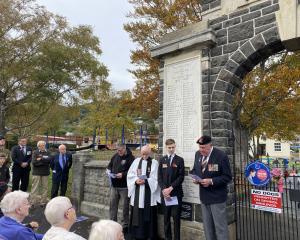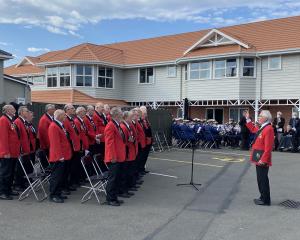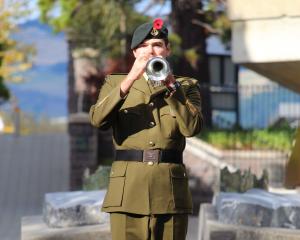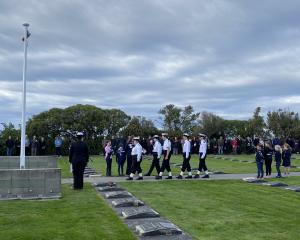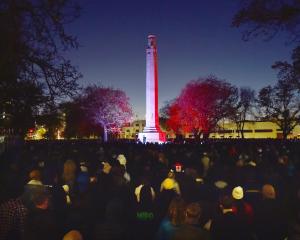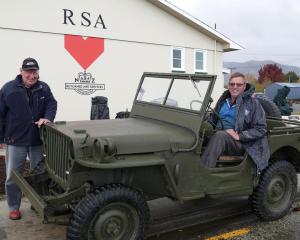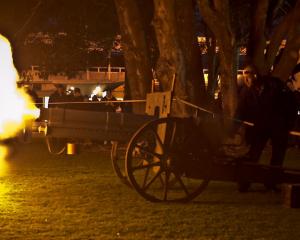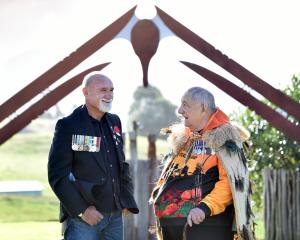World War 2 veteran Peter Wildey's formidable memory is matched by his modesty, writes Shane Gilchrist.
On an autumn afternoon in Alexandra, the sun is streaming through the windows of a lounge, warming its occupants and illuminating the photos and pictures that adorn shelves, nooks and crannies.
To one side of the lounge sits a crowded shelf on which a whole series of hardcover books could easily be overlooked. Closer inspection provides clues to a range of interests and experience.
Textbooks on mineral deposits, physics and engineering compete for attention with the memoirs of Field-marshal Bernard Montgomery and volumes on the battles of El Alamein and Crete.
Elsewhere, a framed print of a tapestry hangs on a wall. A representation of events on Crete in May 1941, the picture depicts a furious battle with scores of German paratroopers landing amid the fire of Allied guns pointed skyward.
Peter Wildey was there. Now he's here, comfortably perched on his sofa, recalling a variety of wartime escapades, including how he and his fellow sappers of the 2nd New Zealand Expeditionary Force escaped those tapestry scenes.
At 94, Mr Wildey has a sharp memory, pipped only by a modesty that has him pointing to the deeds of others who served.
"In this thing, I'd like to see it made . . . that it's just [the recollections of] Peter Wildey,'' he softly insists. "These were some of my personal experiences, but others also had the same . . .''
When World War 2 started, Mr Wildey was a mining student at the University of Otago. He combined his studies with a job as a radio serviceman at Dunedin firm Calder Mackay, becoming involved in a radio station that operated from the premises.
"I used to help them with that. I built a few amplifiers . . . That came in handy, too. I learnt a lot. We had lots of radios [during the war].''
At 26, he was older than many of the classmates with whom he boarded the RMS Aquitania in 1940, bound for England.
"We were all mining students, the whole lot of us. We'd had two years underground experience with explosives, which was most useful.''
A commissioned officer, Mr Wildey initially held the rank of second lieutenant; he returned a major.
He first saw action in Greece in April 1941, his 7th Field Company involved in an Allied campaign that was a series of rearguard actions against superior forces.
"They outnumbered us 25 to one,'' Mr Wildey recalls. "They had modern gear. They had tanks, we had none. The air force had nothing; they just blew hell out of us. A lot went back to Egypt, but our particular crowd went to Crete and got mixed up in the things there.''
The Battle for Crete in May 1941, involved 40,000 Allied troops, including more than 7500 New Zealanders. More than 3500 were killed, including 671 New Zealanders, and 15,000 captured, of whom more than 2000 were Kiwis.
Though it was a defeat that resulted in an Allied evacuation, German losses in the airborne assault were even higher.
Mr Wildey's experience of the fighting that occurred on Crete in 1941 has been well documented. A series of oral interviews and subsequent transcripts, involving Mr Wildey and other veterans, were completed by Megan Hutchings in 2000, with HarperCollins publishing A Unique Sort of Battle: New Zealanders Remember Crete, edited by Hutchings, in 2001.
Earlier this year, some of Mr Wildey's recollections were among 11 oral histories presented to the Alexander Turnbull Library. They relate what it was like to be a divisional sapper in Greece, Crete and in subsequent campaigns, including North Africa.
The project was co-ordinated by Lizzie Catherall and funded by an award in oral history from the Australian Sesquicentennial Gift Trust, established in 1990.
After Crete, Mr Wildey headed to Egypt, where he was involved in protracted desert battles with German and Italian forces.
"Prior to El Alamein, it was a terribly bitter period. We were outgunned, with no tanks. We had very heavy casualties. We were so short of things . . . We didn't have a hope against the German tanks.
"They had a gun platform where the tank can be going and the gun will stay steady. They had the equivalent of a 15-pounder gun and we had a little 2-pounder. It was no good.''
In his introduction to Cody's Official History of New Zealand in the Second World War 1939-1945: New Zealand Engineers Middle East, Major-general Bernard Freyberg, commander of the 2NZEF, wrote of the divisional sappers: "Through their skills in laying and lifting minefields, they were into the most forward of the fighting throughout the campaigns in North Africa.''
Certainly, Mr Wildey's tales of incidents in the deserts of Egypt and elsewhere are harrowing: During an attempt to recover a tank in the North Africa campaign, a German shell went past him, end over end, but did not explode; on the same mission, he "grabbed something'', discovering it to be a foot belonging to a sergeant-major killed by the same mine that had crippled the tank.
His method for dealing with unexploded bombs often involved him attaching a long wire from his Jeep to the tail of the ordnance and driving away, pulling it out of the ground: "If it went off, it went off. If it did, I wouldn't get hurt.''
However, Mr Wildey's North African adventures were not all of a military nature. Cairo was also the location of his marriage to Mary Helen Crawford, a nurse whom he had first met at Mornington School, Dunedin.
"I'd known her before the war . . . I was in hospital with all the tendons slashed in that wrist in training,'' he recalls, pointing to his right hand. "I was in Auckland . . . This nurse came along. She said, `I'll give you a job to do. The old fella in the bed next to you is a bit potty. Just keep your eye on him and if he gets out of bed, let me know'.
"Well, it was lovely and warm and I went to sleep. This old boy got out and was peeing all over the floor . . . I got told off. We got quite friendly. She decided she'd come across [to Cairo]. We were very much in love and we wanted to get married . . . She got home a bit before
me.''
Mr Wildey, whose worst wartime wound was a bullet through the foot, returned to New Zealand in 1944, working in mines on the West Coast and at Ohai, Southland.
In 1945, he answered an advertisement for an engineering position at the Otago Harbour Board, where he remained for 30 years. He and Mary later moved to Christchurch, with Mr Wildey settling in Alexandra following the death of Mary in 1989.
Two of the couple's daughters, Gillian and Alison, live in Central Otago. The other, Sally, is in Auckland.
A keen deerstalker and fisherman, Mr Wildey also has artistic inclinations. He was a member of the RSA Choir but, like the driving licence he surrendered last year, he has had to give it away.
'I don't have enough wind,'' he explains, adding he had a quadruple bypass 10 years ago.
To confirm the fact, he points to a photo of Dunedin heart surgeon Richard Bunton. "For a fella with big hands, he does some intricate work.''
Other photos prompt further comments. A big box of memories is hauled out of a cupboard and sifted through: there is a picture of a young 2Lt Wildey emerging bare-chested and bronzed from the Sea of Galilee; another of sappers awaiting evacuation from Crete ("There I am down in the right-hand corner . . . Gee, the poor fellas, they could hardly stand up''); further on, an image of a group of young soldiers includes the face of one of three brothers lost in action.
"It is just luck, you know, whether one fella is killed and another isn't.''
Hear more
Those interested in hearing audio interviews with Peter Wildey can visit www.nzhistory.net.nz/media/sound/peter-wildey.
The site also features edited transcripts of his recollections of the Battle of Crete.


